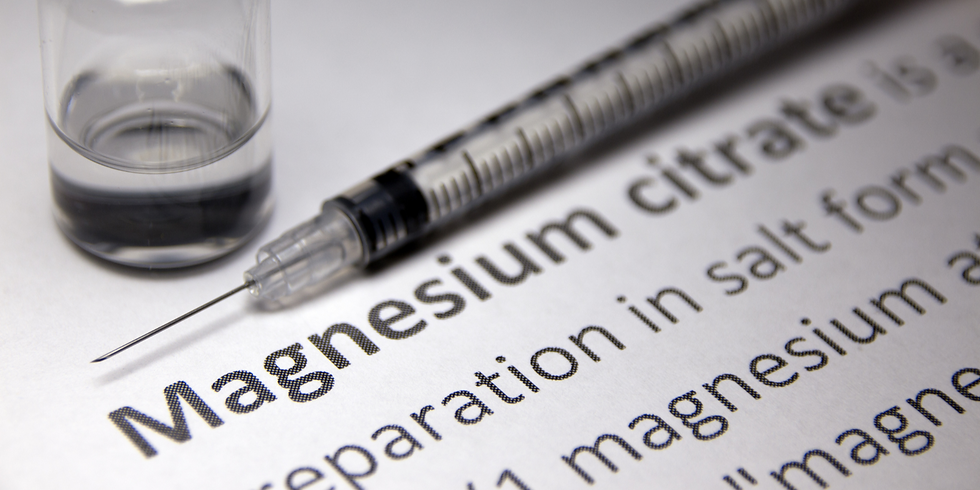What Is Humic Acid?
- Katie Bailey, MS, RD, LD, FNC

- May 14, 2025
- 5 min read
Updated: Jun 24, 2025
Hi everyone. Welcome back to our channel.
Humic Acid has been gaining popularity due to its numerous potential benefits. It is an organic compound that can play a crucial role in both plant and human health.
In today's video, I'll be discussing what is humic acid and how does it work?
What is the difference between humic acid and fulvic acid?
How is humic acid used and what are the benefits?
How do you choose the right humic acid supplement?
And lastly, are there any side effects and precautions to be aware of?
I'm Katie Bailey. I'm a registered dietitian at Flusso Nutrients where we provide supplement education and professional quality supplement options for you to make the world of nutrition supplements a little bit easier to navigate.
As always, be sure to check with your main nutrition literate healthcare provider before starting anything new. As we can't know your full medical history to provide a personalized recommendation.
So without further ado, let's jump into today's video.
[Video Transcript Below + Supplement Links Discussed In Video]
What is humic acid and how does it work?

So humic acid is a naturally occurring compound that is found in soil, peat, coal, and sediment, and it's derived from the decomposition of plant and animal matter over time. It belongs to a group of substances known as mates, which includes humic acid, fulvic acid. In humans, these substances are vital for soil health, nutrient availability, and environmental balance.
Humic acid is composed of functional groups that enable it to bind to toxins, heavy metals and nutrients. Effectively, it operates through its ability to bind toxins and nutrients via ionic exchange. Its negatively charged molecules attract positively charged heavy metals and toxins while simultaneously delivering essential minerals into the cells.
What is the difference between humic acid and fulvic acid?
While both humic and fulvic acid are derived from mates, their differences lie in their molecular size as well as their specific role in soil implant health. So humic acid is larger and it helps to improve soil structure, water retention, and microbial activity. Fulvic acid is smaller and it helps to enhance the transport of nutrients more effectively into the cells. Humic acid provides more long-term benefits while fulvic acid tends to have more immediate results.
And although they have different roles, both humic acid and fulvic acid work synergistically,
How is humic acid used and what are the benefits?
So humic acid is a versatile substance with applications across agriculture, human health, and environmental management. In agriculture, it's use mainly to enhance soil fertility and plant growth for human health, it is used as a dietary supplement for a detoxification gut health immune support, as well as used topically to soothe inflammation. Environmentally, it's used to bind to heavy metals and contaminated soil and water systems.
Now, there are many potential benefits to using humic acid. The first one is gut health. So humic acid can promote the growth of the beneficial bacteria in the gut, strengthen the gut lining, as well as reduce inflammation. And this is going to help to prevent conditions like leaky gut and also help to improve digestion.
The second benefit is detoxification. So humic acid can bind to heavy metals and toxins such as mercury, lead and glyphosate in the digestive system and facilitate the removal of them from the body.
The next benefit is immune support. So it enhances immune function by helping to stimulate the growth of that beneficial bacteria while working to inhibit the harmful bacteria growth. And it's also been shown to have antiviral properties.
Next is enhanced nutrient absorption. It helps to improve the uptake of essential minerals in both plants and humans.
And then lastly, there's the potential for an energy boost. So by increasing nutrient absorption, that is going to help to improve cellular energy production, which can then lead to improved mental clarity, mood and reduced fatigue.
How do you choose the right humic acid supplement?
When choosing humic acid supplements, you want to look for a product that's high quality with natural sources like ancient organic matter or mineral rich humate that are free from contaminants that are tested for purity and safety. Choose a formulation that works best for you. A liquid supplement tends to have a higher absorption rate than capsules, but capsules offer more convenience. Choosing a humic acid supplement that also contains fulvic acid may help to enhance nutrient transport and cellular absorption. Choose reputable brands that also have third party testing certifications. And then lastly, always follow dosage recommendations or work with a practitioner that can figure out the right dosage for you and start at a low dose and increase as tolerated.
Are there any side effects and precautions to be aware of?
So humic acid is generally considered safe when used appropriately, but there are some side effects and precautions to be aware of. And these symptoms may vary depending on the type of supplement that you have and the quality, the dosage that you use, as well as an individual's health condition. Now, some may experience diarrhea or nausea, headaches, Herxheimer reactions like a rash or fatigue. And this is due to that rapid release of toxins from the body.
Now, there is insufficient research on the safety of humic acid in pregnancy and breastfeeding, and therefore it's not recommended for those individuals. There are potential medication interactions as well, and it should not be taken with immunosuppressants, anticoagulants, and thyroid medication. And as always, you always want to make sure to check with your healthcare provider before starting anything new.
To wrap up our topic for today,
Humic acid is a natural compound that has the potential to support gut health, detoxification, and immune function. Whether you're looking to improve digestion, strengthen your immune system, or explore natural health solutions for detoxification. Incorporating humic acid into your routine may be beneficial. If you're interested in trying humic acid, I'll link a quality one below.
That's it for today's video. If you liked this video, please hit the like button and subscribe for more nutrition videos. Let us know in the comments if you have any questions. And if you're interested in working with our clinic, you could click the link here to schedule an appointment. We do take insurance. You can find more information about that on our website. Thank you for watching. I'll see you next time. Bye.
Check out the high-quality supplements we discussed in this video - links below for your convenience!
1) Humic Acid 750 mg by Allergy Research Group: create an account here, then search the name "Humic Acid 750 mg by Allergy Research Group" - https://us.fullscript.com/welcome/flussonutrients
2) ION Gut Support by ION Intelligence of Nature: create an account here, then search the name "ION Gut Support by ION Intelligence of Nature" - https://us.fullscript.com/welcome/flussonutrients
3) ALL PROFESSIONAL QUALITY SUPPLEMENTS: https://flussonutrients.nutridyn.com & https://us.fullscript.com/welcome/flussonutrients




Comments